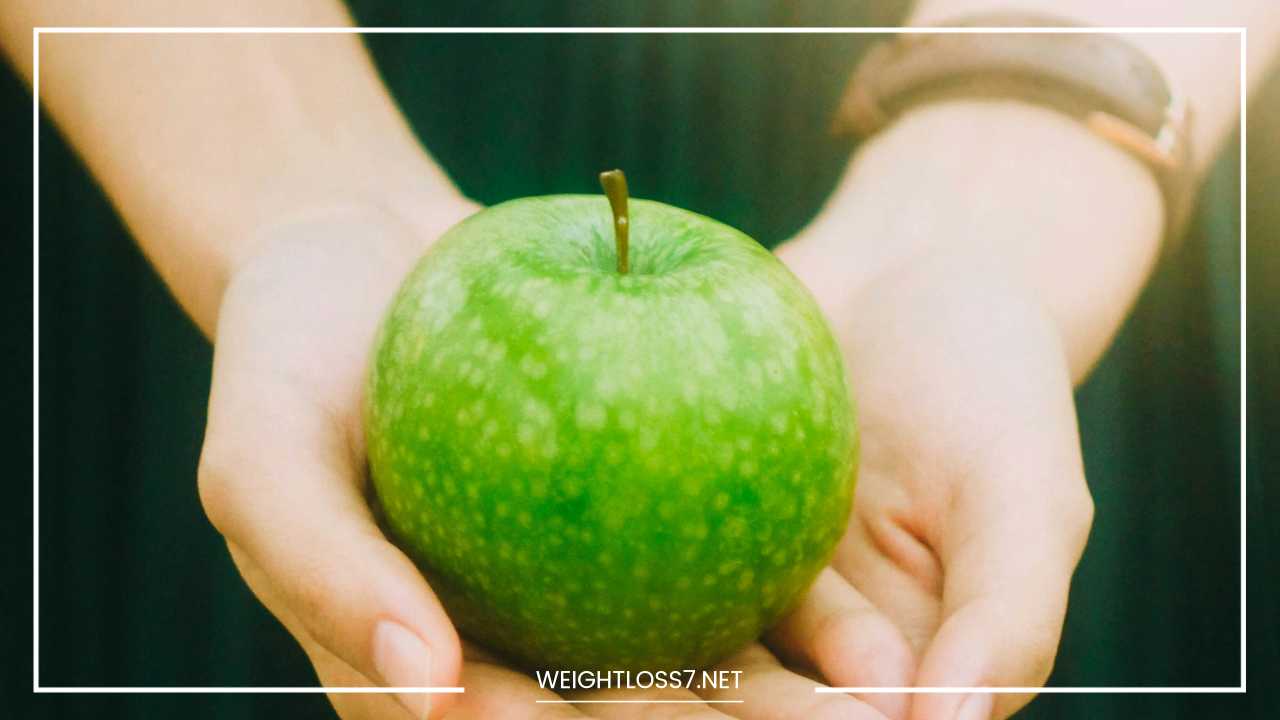Are You Ready to Lose Weight

Lose Weight
Are You Ready to Lose Weight? Embracing Change for a Healthier You
The desire to lose weight is a constant hum in the background of modern life. Images of sculpted physiques bombard us from social media to magazine covers. Society often equates a slimmer frame with success and attractiveness.
But before you jump on the latest fad diet bandwagon, take a deep breath and ask yourself a crucial question: Are you truly ready to lose weight?
Losing weight isn’t a quick fix or a temporary solution. It’s a commitment to a new way of living, one that prioritizes overall health and well-being. It’s a journey that requires introspection, a willingness to shift ingrained habits, and a dose of self-compassion.
This blog post isn’t here to pressure you into another restrictive diet or unrealistic exercise routine. We’re here to help you assess your readiness and guide you towards a healthy approach to weight management.
Signs You’re Ready to Make a Change:
The decision to lose weight should be fueled by intrinsic motivation, not external pressures. Here are some signs that indicate you’re ready to make a lasting change:
- Motivation Matters: Your primary driver is a desire to feel better, have more energy, and live a healthier life. Long-term health goals like reducing your risk of chronic disease, keeping up with your kids, or simply feeling more comfortable in your own skin are powerful motivators.
- Mindset Shift: You’re ready to ditch the yo-yo dieting mentality and embrace a sustainable approach. You understand that weight loss is a marathon, not a sprint. You’re willing to put in the work for long-term results.
- Support System in Place: You have a network of friends, family, or a healthcare professional who will encourage you on your journey. Accountability with loved ones who understand your goals can be a powerful motivator.
Self-Assessment: Are You on the Right Track?
Before diving headfirst into a new meal plan or exercise routine, take a moment to answer these questions honestly:
- Am I using food for comfort? Emotional eating can sabotage even the best weight-loss plans. If you find yourself turning to food to cope with stress, anxiety, or boredom, address these underlying issues before focusing on diet changes. Consider seeking a therapist who can help develop healthy coping mechanisms.
- Do I have a realistic goal? Setting unrealistic weight-loss goals like shedding 10 pounds in a week is not only unsustainable but can also be detrimental to your health. Aiming to lose 1-2 pounds a week is a safe and achievable target.
- Am I physically able to exercise? Be honest with yourself about your current physical capabilities. If you have any concerns about starting an exercise routine, consult your doctor. There are plenty of low-impact options like walking, swimming, or yoga to get you started.
Building a Sustainable Weight Loss Plan:
Forget the fad diets with their strict limitations and unrealistic promises! Here’s how to build a healthy, sustainable weight-loss plan you can stick with in the long run:
- Focus on Whole Foods: Fill your plate with a rainbow! Prioritize fruits, vegetables, whole grains, and lean protein sources. These foods are packed with essential nutrients that keep you feeling fuller for longer and provide your body with the building blocks it needs to function optimally.
- Portion Control is Key: Our eyes are often bigger than our stomachs. Use smaller plates to trick your brain into feeling satisfied with a smaller amount of food. Practice mindful eating – pay attention to your hunger and fullness cues, and savor each bite.
- Don’t Deprive Yourself: Restrictive diets often lead to cravings and binges. Allow yourself occasional treats in moderation. All-or-nothing mentality is often counterproductive in the long run. Aim for a balanced approach that allows for flexibility and enjoyment.
- Find Movement You Enjoy: Exercise shouldn’t feel like punishment. Explore fitness activities you find genuinely fun, whether it’s dancing to your favorite tunes, taking a group fitness class, or exploring nature with a hike. Start slow and gradually increase intensity and duration as you build endurance.
- Hydration is Essential: Water is our body’s most important nutrient. Staying hydrated can help curb cravings, improve digestion, and boost your metabolism. Aim to drink plenty of water throughout the day.
Remember, It’s a Journey, Not a Destination:
Weight loss is a process, not an overnight transformation. There will be bumps along the road, plateaus, and setbacks. Don’t get discouraged! Celebrate your non-scale victories – increased energy, better sleep, improved mood, or the ability to fit into your favorite pair of jeans again.
Additional Tips for Success:
- Track Your Progress: Keeping a food diary or using a mobile app to track your calorie intake and exercise routine can be a powerful tool. Seeing your progress, both big and small, can be motivating and help you stay accountable.
- Meal Prep for Success: Planning and prepping meals in advance can be a game-changer, especially on busy days. This way, you’re less likely to grab unhealthy convenience foods when hunger strikes.
- Cook More at Home: This gives you control over ingredients and portion sizes. Experiment with healthy recipes that are delicious and satisfying.
- Find a Weight Loss Buddy: Partnering with a friend or family member who shares your goals can provide support, encouragement, and a sense of accountability. You can motivate each other to stay on track and celebrate milestones together.
- Seek Professional Help: If you’re struggling with weight loss or have underlying health conditions, consider consulting a doctor or registered dietitian. They can provide personalized guidance, develop a tailored plan based on your needs, and address any medical concerns you might have.
Understanding Your Relationship with Food:
Our relationship with food is complex and deeply personal. It’s shaped by our upbringing, cultural background, and emotional state. Here are some ways to develop a healthier relationship with food:
- Practice Mindful Eating: Slow down and pay attention to the experience of eating. Savor each bite, notice the flavors, textures, and aromas of your food. This can help you feel more satisfied with less food.
- Identify Emotional Triggers: Are you a stress eater? Do you turn to food for comfort when you’re feeling down? Recognizing your emotional triggers is the first step to addressing them. Explore healthier coping mechanisms like journaling, meditation, or spending time in nature.
- Challenge Negative Self-Talk: We often have a critical inner voice when it comes to food and our bodies. Challenge those negative thoughts with positive affirmations. Focus on self-compassion and celebrate your progress.
Building a Sustainable Lifestyle:
Sustainable weight loss is about creating healthy habits you can integrate into your daily life. Here are some tips to consider:
- Make Gradual Changes: Don’t try to overhaul your entire lifestyle overnight. Start with small, sustainable changes that you can easily stick with. Gradually incorporate more fruits and vegetables, swap sugary drinks for water, or add a short walk to your routine.
- Find Activities You Enjoy: Exercise doesn’t have to be confined to the gym. Find activities you genuinely enjoy, whether it’s dancing with your kids, joining a sports team, or taking your dog for a walk in the park.
- Focus on Progress, Not Perfection: Aim for progress, not perfection. There will be days when you slip up, and that’s okay. Don’t beat yourself up. Just get back on track with your next meal or workout.
Remember:
Weight loss shouldn’t be about achieving a “perfect” body or fitting into a certain size of clothing. It’s about taking care of your temple – your body – and feeling your best from the inside out. By focusing on healthy habits, self-compassion, and a sustainable approach, you can reach your goals and experience a lifetime of well-being.
Taking the First Step:
Ready to embark on your weight-loss journey? Here are some resources to get you started:
- The National Institutes of Health (https://www.niddk.nih.gov/health-information/weight-management) provides a wealth of information on healthy weight management, including balanced diet plans and physical activity recommendations.
- The American Council on Exercise (https://www.acefitness.org/resources/everyone/exercise-library/) offers a comprehensive library of exercises for all fitness levels, along with expert advice on exercise technique and safety.
- Academy of Nutrition and Dietetics (https://www.eatright.org/) can help you connect with a registered dietitian in your area who can create a personalized meal plan based on your needs and preferences.
Remember, you are not alone on this journey. Believe in yourself, celebrate your victories, and embrace the process of creating a healthier, happier you!

















